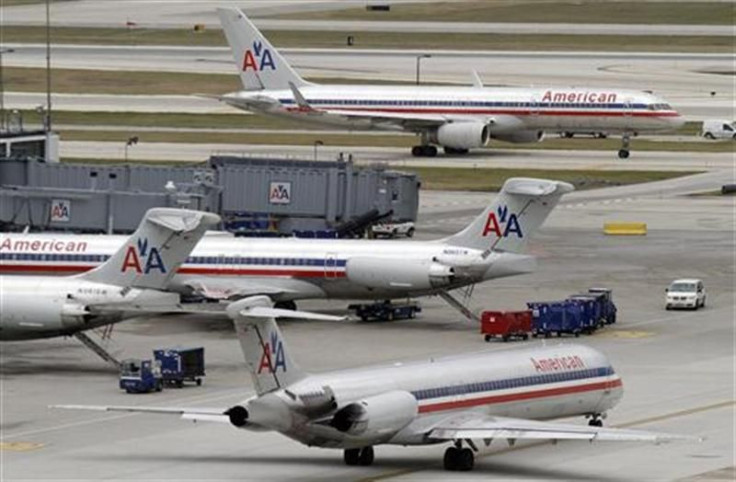Major US Airlines Join Delta Adding Surcharge in wake of EU Emissions Law

US Airways, American Airlines, and United Continental have all joined Delta Air Lines in adding surcharges to flights in the wake of a disputed European law requiring airlines to pay for aircraft emissions.
The move is an attempt to offset the cost of the European Union's new Emissions Trading Scheme (ETS) that took effect Jan. 1.
Delta was the first to make the change, announcing on Tuesday that it would add the $3 surcharge each way on fares purchased in the United States for flights to Europe.
Germany's Lufthansa also told passengers to expect higher fares, though they did not say when.
In the new Emissions Trading System, airlines touching down or taking off in the 27-nation European Union and three neighboring nations must account for their CO2 emissions.
The EU doles out a certain number of credits for the amount of CO2 emissions airlines need to operate. The program caps carbon-dioxide emissions at 2006 levels and allows airlines to fly 85% that amount for free the first year and 82% after that. Airlines will then need to pay for the remainder in addition to any increase in fuel burning by buying so-called allowances from industries burning less.
The EU envisions itself as the leader in the global fight against climate change. It decided that aviation should become a part of its carbon program after airline discharges in Europe doubled over two decades and international organizations failed to enact emissions curbs.
The EU law offers the possibility of exempting incoming flights from certain countries if a nation applies equivalent measures to rid pollution from its air transport sector. Alternatively, operators that don't comply with the rules would be penalized and potentially banned if they persistently fail to meet legal obligations.
The law has been largely supported by environmentalists trying to stifle the amount of greenhouse gases seeping into the atmosphere, however airlines based outside of the EU that are already struggling to stay afloat in today's economic environment are currently fighting the system, arguing that it is illegal for them to have to comply with the rule. The Jan. 1 change was the first expansion of the EU carbon cap-and-trade program beyond its borders.
Many global airlines are now considering whether it's feasible to avoid landing in Europe during connecting flights to avoid the fee.
The EU faces increasing pressure to scale back its plans to impose carbon curbs on airlines after China's carriers said they would not comply with the rules and India signaled it may follow suit. According to China Air Transport Association (CATA), Europe must either scrap or delay its initiative.
The harsh warnings from China and India are in accordance with a declaration adopted in November by the United Nations' International Civil Aviation Organization calling on the EU to exempt international aircraft operators from its curbs on carbon. Supported by 26 nations, including the U.S., Russia, and Japan, the non-binding ICAO statement claimed that the expansion of the EU program was not consistent with international law.
U.S. airline industry group Airlines for America (A4A), which has sued the EU saying the law violates international aviation treaties, estimated that the emission law could cost the U.S. airline industry $3.1 billion from 2012 through 2020.
A4A said the rule further isolates the EU from the rest of the world and will keep in place a unilateral scheme that is counterproductive to concerted global action on aviation and climate change.
The EU believes the cap-and-trade rule will ultimately do more good than harm, translating into just a few dollars per ticket and encouraging airlines to improve their efficiency and ultimately their profits.
© Copyright IBTimes 2025. All rights reserved.






















